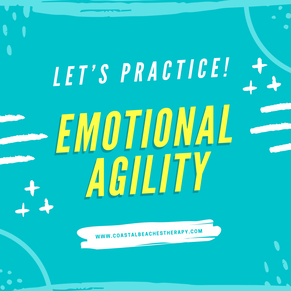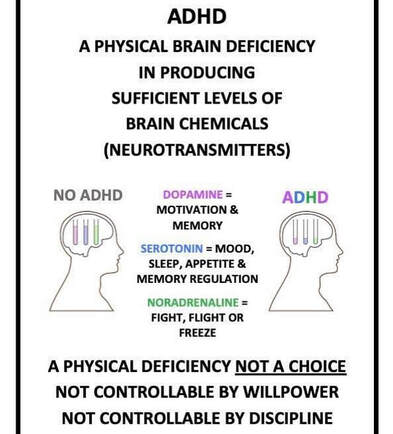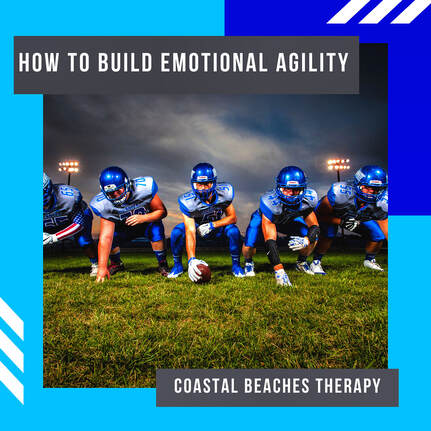|
A few months ago I had both the honor and privilege of contributing as a guest to the Dance Nutrition Blog, operated by To the Pointe Nutrition Founder and Registered Dietician (RD), Rachel Fine. I am linking the article to her website here.
Rachel works closely with dancers, athletes, and fitness enthusiasts alike. Rachel is a professional who is authentically and compassionately herself, and her service and dedication to her clients is unparalleled. Rachel is a Registered Dietician Nutritionist, Certified Specialist in Sports Nutrition, and Certified Counselor of Intuitive Eating. You can also check out her main website, To the Pointe Nutrition by clicking here. Now that I have your attention, I want to share a bit of information on how we experience feelings of wellbeing and happiness. Due to the ongoing Covid-19 pandemic, more people are experiencing feeling depressed and anxious than ever. Long periods of isolation, coupled with chronic stress and worry are certainly a factor in this ongoing crisis in mental health and there is a reason for that. Humans are a social species and isolation has a major impact on our emotional state. The human brain contains pathways that without much stimulation and physical connection cause a depression (or decrease) in neural activity that overall contribute to emotional and mental states. Feelings of wellbeing and happiness are largely driven by four brain neurotransmitters and hormones - endorphins, oxytocin, dopamine, and serotonin. These four neurotransmitters and hormones specifically have complex effects on our brain, body, and overall lifestyles (e.g. what we eat, who we spend time with, what we do). And the effects can be for better or for worse. EndorphinsThe brain contains numerous receptors that have a basic primary function of receiving, interpreting, and channeling data to produce a chemical response. When you are in significant pain, the brain's receptors receive that data and in response, release morphine. Endorphins have a similar effect on the receptors in the brain and can often relieve pain, creating a feeling of bliss as a side-effect. Exercise is often recommended as a coping mechanism because exercise is known to release endorphins. After an intense workout is completed, any physical discomfort is alleviated and a person can feel a sense of euphoria. Euphoria can feel like a post-workout boost in mood, or a "runner's high". Despite having a positive impact on mood and overall functioning post-workout, it is important to not overdo it with exercise because over-exertion can cause the release of the stress hormone cortisol, which can negatively impact mood. A key component in creating endorphins in the body is to go slightly out of your comfort zone. This is not limited intense physical exercise as the only option. I often suggest to my clients who are struggling with anxiety disorders to consider using cold water exposure as coping mechanisms. The initial shock of cold water exposure (e.g. ice packs on the back of the neck, ice cold spoon or ice pack underneath the eyes, jumping in a cold body of water such as the ocean, cold shower) is certainly uncomfortable at first but that is the point! The body will release endorphins to counteract the intense discomfort. This method also helps train and condition the brain to become familiar coping with stress as the brain learns that suffering is temporary. OxytocinOxytocin is known as the love hormone, but it is involved in almost all forms of human bonding. Hugging, or any close physical contact with people you love - such as holding hands or cuddling your pet will deliver oxytocin and boost your mood. Of course, with Covid-19 there are greater restrictions in place creating numerous barriers to experiencing close physical contact with people and many people are being denied the physical touch that humans naturally crave. While in-person interactions can produce greater oxytocin, connecting with others online is still better than nothing. A weighted blanket and perhaps a warm bath could be useful tools to utilize as a supplement for feeling isolated during the pandemic. DopamineDopamine is the reward neurotransmitter in the brain. Dopamine is released when you do things that give you immediate pleasure, like getting a snap from someone on Snapchat, or eating. This neurotransmitter is linked to the anticipation of reward and will drive you to seek out things you enjoy. If we did not have Dopamine, we would have the ability to possibly enjoy something one time and never be motivated to do it again. Since the Covid-19 lockdown and pandemic began in March of 2020, I have noticed a significant decrease in motivation from my clients in their everyday lives. I tend to normalize this as a possible disruption in the dopamine pathways of his/her/their brains. What is the correlation? Since March of last year, many of us have lost the routines of our daily lives (e.g. going to a specific exercise class at a specific time as our self-care outlet, not being able to go out to dinner with friends on Friday nights, practices and games being cancelled). A way to work with this feeling is to try and rewire the reward circuits in your brain with a technique called behavioral activation. Behavioral activation is a technique often used in Cognitive Behavioral Therapy. Basically, this skill involves intentionally scheduling rewarding activities throughout the day or week. Behavioral activation can help someone out of a period of feeling low on motivation by intentionally scheduling and challenging the person to take on small and manageable tasks. As the person completes the tasks, they can begin to feel satisfaction that gradually restores the drive that fuels motivation. Want to give it a try? Think about practicing a new or old hobby you enjoy, like playing an instrument, painting, or playing lacrosse. At first, you will want to practice just a little bit each day so the task does not feel overwhelming. Over time, this will build up the feeling of having energy and motivation. It is truly about training yourself to seek out a reward. SerotoninThis neurotransmitter can affect not only mood, but your digestion and it plays an important role in sleep. Serotonin does not cause happiness but it can help a person shift out of a bad mood and into a better one. The takeaway here is that when you are able to demonstrate control over different aspects of your life, you are better able to experience happiness, particularly when there is little to no control over other things in life.
Developing psychological flexibility as a top performing athlete requires goal setting. With that said, my athletes are taught very early on to learn and develop the "3's for MVP's" when goal setting. What are the 3's for MVP's you ask? Keep reading to find out!
I was recently working with a young athlete whose obsessive and compulsive thoughts from their OCD was leading them to over-training and as a result of over-training, injury. The person's passion for their specific sport and the goal of making an NCAA Division 1 team lead them to develop the explicit thoughts of "something is not-just-right", which subsequently led to the development of behaviors on the court reflecting the "not-just-right" thoughts. This athlete was getting stuck in individual workouts for hours that lead to significant feelings of sadness, anxiety and an increase risk of injury. When I began working with this goal-driven, and highly motivated individual, we wanted to focus on setting achievable goals they can work on in between our sessions. This is where I introduced them to the "3's for MVP's": The 3's for MVP's: 1. Emotional Goals - how you feel 2. Outcome Goals - the result you get 3. Behavioral Goals - what you do Once I introduced the 3's for MVP's, I pointed out the most effective practice focuses on goal #3. Using this model, the client began to shift the training routine to intentionally planning for X number of repetitions of multiple skills, rather than X number of successes overall. Their workouts have become more diverse, robust, flexible, and less time-consuming. And the ultimate result? The client's mood AND athletic performance have improved considerably!
On the topic of self-awareness, are you aware that self-awareness makes you impenetrable to judgment? Say your name is John and I walk up to you and call you banana. You would most likely give me a strange look and know that I am wrong because you know your name is John. So me calling you banana is almost funny in a way because it is just not true. This same way of thinking can be applied to judgment and self-awareness because when you take the time to get to know who you truly are and begin to understand WHY you are the way you are, when someone else judges you, it becomes the John to the banana situation. You just know that what someone else is saying is not true. So instead of thinking "does this person know something about me that I don't?" You think "this person just does not know me so I am not going to waste my time giving them my energy". Get to know yourself so that you can be the one that holds the power over judgments that simply do not belong to you. Here are some of the basic things to keep in mind about Emotional Agility (EA):
You can become your own performance coach if you would just listen to what your mind and body are trying to tell you. You have the power already inside of you. Now go access it!
I am sharing this video clip for the athlete in the back who may just miss this important message.
I firmly believe that each time an athlete speaks up about mental health, they are helping to lay a foundation, brick by brick for the future of mental and physical wellness in sports. And just in this moment, two successful athletes came together, showing the rest of the world jut how powerful vulnerability and openness about mental health can be. This takes good sportsmanship to an entirely new level and I am hopeful for the future of sports and mental health. Persons who are clinically diagnosed with Attention deficit/hyperactivity disorder (ADD/ADHD) tend to regulate by doing and/or reacting. To clarify, I am referring to a reaction or behavior that is often done “impulsively” as an effort to decrease symptoms of physical discomfort and irritability (e.g overthinking, worrying, fidgeting, over-eating).
This is because there is a reduced amount of dopamine in the brain and dopamine production is neither steady or abundant in the synapses that moderate neurotransmitter production. And so, by reacting through various forms of action, the brain can enjoy a surge of dopamine, an increase in energy that improves attention, and a serotonin-based calming of restlessness. If you skipped the lecture above and want to get to the summary this is it: The ADD/ADHD brain must work harder to produce the neurotransmitters non-ADD/ADHD brains produce organically. In the words of Montell Jordan: “This is how we do it”...
1. Foster the courage and compassion to face your difficult and most challenging emotions. 2. Shift perspective. In other words, zoom out to take in a broader view. 3. Let go of “being right” and instead, choose curiosity. 4. Identify your why. What are your values? 5. Walk your why. Make daily choices that reflect what matters to you. 6. Grow. Take on challenges that push you to the edge of your ability, even when it’s uncomfortable. 7. Be open to change. Life changes. You change. Know when to grit and when to quit.
In recent news, Dallas Cowboys Quarterback, Dak Prescott had the courage to speak openly about his depression and grief. A sports columnist openly dismissed Presscott's vulnerability, going as far to say it weakens his leadership qualities. ESPN anchor, Scott Van Pelt responded to the remarks by using his voice to acknowledge the person behind the helmet who spoke openly and bravely about his mental health and emotional pain. Van Pelt also took the opportunity to use his platform to validate and empower athletes to speak openly about his or her mental health. Thank you Scott Van Pelt for saying what needed to be said. We must continue to build a culture within sports where we can drop the veil of shame in speaking openly about mental health. There is NO shame in mental health.
If athletes can invest in their physical and nutritional health for peak performance, can you imagine what the game could look like if they also invest in their mental health and mental performance? I am tired of the chutzpah surrounding the word “mental health” in sports which is why part of my goal as a mental health professional is to help people, help athletes through different points in his or her life through a lens of general wellness so they can work through all of their issues - things that are frustrating them, things they are thinking about. After all, in a game that is 90% mental, you can’t win the game based on physical fitness and nutritional health alone.
|
AuthorAmy Pope-Latham, LCSW is a board certified mental health professional in Ponte Vedra Beach, FL. Archives
December 2022
Categories
All
|





 RSS Feed
RSS Feed